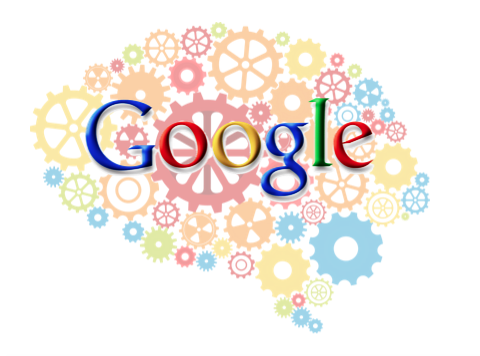If Athena the goddess of knowledge and her owl (symbol of knowledge) were to land on earth today and look at the way humans deal with knowledge they would be in for a big surprise! For the ways we create knowledge and the ways in which we perceive our own knowledge have changed significantly in the last few decades. In this blog I present these changes and also describe what I consider to be a new model for knowledge sharing!

There is a new kind of knowledge from machine-based models
Even though knowledge is produced in several sectors of human society, scientific institutions have been its major contributors. The methodology of science resides in model generation and testing. Small scale models are built to test and draw conclusions of the phenomena of the world. The assumption here of course is that our world is knowable, that there is underlying order in our chaotic world that can be explained using models. For example, Watson and Crick built a model of the double helix using balls and sticks to represent the different atoms, their relative sizes and the bond lengths between them. They used these models to create hypothesis and understand the nature of the DNA. Artificial neural networks modelled on the workings of the biological neurons build their own models to help us solve problems. These heuristic models use a network of weighted connections that learn and pass their knowledge to the next layer. Although the knowledge that emerges from these machines may be useful to understand our world, these models themselves are not understandable to humans because of their black box like nature. Plato described knowledge as “justifiable true belief”. Going by Plato’s definition of knowledge, this new knowledge then is not totally justifiable (Weinberger 2017) as the model that gave birth to it is not explicable. Hence the new kind of knowledge that is being brought to us by machines bring need to be treated with caution. Biases in the data that is being fed to these models can contort the knowledge that emerges from them.

We are perceiving our own knowledge in new ways – The Google effects
People have always been reliant on others for knowledge. Every generation has stood on the shoulders of their ancestors to gain from their knowledge, and thus contributed to advancement. We rely on communal knowledge of friends, family etc., to navigate the informational demands of every day. But this kind of knowledge dependance has shifted ever since the democratization of powerful internet search engines. The internet has emerged as a new and powerful knowledge partner. The effect that Google has on our memories and knowledge perception has been called Google effects. Two kinds of Google effects have been published in scientific literature. The first one happens where people fail to retain the information in their minds because they know that it can be easily found later the internet. This phenomenon is also being called Digital Amnesia. The second google effect is when people mistake the internet’s knowledge to be their own. When auteurs of a recent study published in PNAS (Ward 2021) asked people to answer general knowledge questions, people who were allowed to consult the internet to answer them, erroneously attributed the internet’s knowledge to be their own. They also showed inflated levels of confidence when it came to their own knowledge abilities. The researchers warn that this intellectual hubris might lead to people making risky financial behaviors or making own medical decisions. Also, if we believed that the knowledge that we search for on the internet already existed in our minds then we might not stop to scrutinize misinformation and easily accept it without correct reasoning.
A new model for knowledge sharing?
When thinking about knowledge management in various types of organizations (private, governmental, and non-governmental organizations-NGOs) one of the idea’s that struck me was how certain cultures could naturally promote knowledge sharing. It seems to me that the cultures that prevail in NGOs could facilitate knowledge sharing when compared to the other types (Corfield, Paton, Little 2013). In fact, the NGO culture could be compared to the Montessorian culture. The Montessori classroom is characterized by a team of 25-30 children of various ages (3-6 years, 6-12 years) and two adults working together in an environment that promotes auto education. The culture of this community is based on cooperation and the structure is horizontal. The flow of knowledge in the Montessori environment between children is natural. Older children do not need incentives to share their knowledge with younger ones. Tacit and explicit knowledge is shared simply by working together in the classroom. For example, many younger children will simply sit and watch an older child working at an activity and absorb tacit knowledge. As far as explicit knowledge is concerned children are free to talk together and exchange in groups and naturally impart their knowledge to each other. NGOs share several similitudes with the Montessori environment. Their structures are horizontal qnd they consist of teams of people working together for a common cause without any necessary competition between them. In contrast to knowledge sharing, knowledge hoarding is a phenomenon that exists in private enterprises that are mostly based on competitive environments and it needs to be managed using employee incentives. It seems to me that private organizations can benefit from implementing Montessori like cultures in their workplaces to gain the strategic advantage that is brought about by knowledge sharing.
BIBLIOGRAPHY
CORFIELD, Alison, PATON, Rob and LITTLE, Stephen, 2013. Does Knowledge Management Work in NGOs?: A Longitudinal Study. International journal of public administration. 2013. Vol. 36, no. 3, pp. 179–188. DOI 10.1080/01900692.2012.749281. Retrieved from: http://oro.open.ac.uk/35224/
WARD, Adrian F, 2021. People mistake the internet’s knowledge for their own. Vol 118. 2021. pp. 1–10. Retrieved from: https://www.pnas.org/doi/10.1073/pnas.2105061118
WEINBERGER, David, 2017. Our Machines Now Have Knowledge We’ll Never Understand. Wired. Online. 2017. [Accessed 18 December 2022]. Retrieved from: https://www.wired.com/story/our-machines-now-have-knowledge-well-never-understand/



Laisser un commentaire